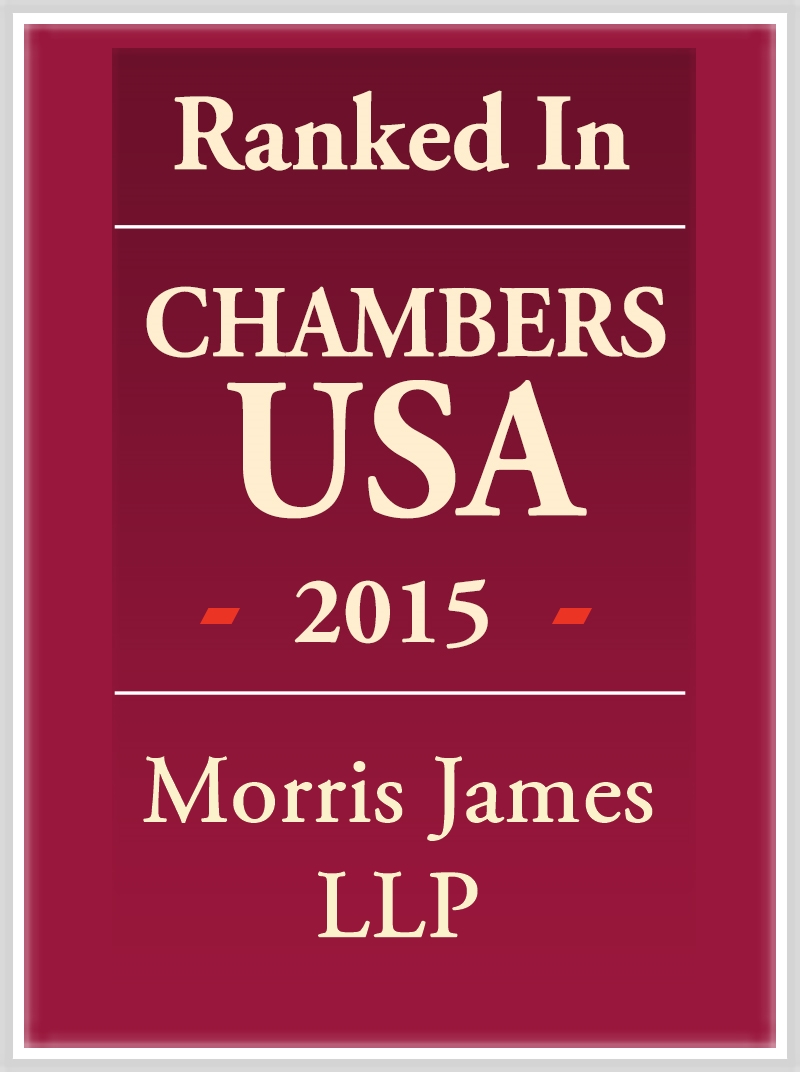Showing 19 posts from May 2015.
Court Of Chancery Upholds Cash Calls To Eliminate Minority Owner
CanCan Development LLC v. Manno, C.A. 6429-VCL (May 27, 2015)
This is a great decision on how to get rid of a minority owner in an LLC when she is disruptive. More ›
ShareCourt of Chancery Upholds Right To Secondary Offering
In Re Molycorp Inc. Shareholder Derivative Litigation, C.A. 7282-VCN (May 27, 2015)
When investors bargain for the right to have their stock sold in a secondary offering after the company goes public, fiduciary duties normally do not operate to restrict that right. More ›
ShareCourt Of Chancery Limits Conditional Advancement Contracts
Blankenship v. Alpha Appalachia Holdings Inc., C.A. 10610-CB (May 28, 2015)
Corporations continue to regret conferring broad advancement rights on their former directors. This is yet another example of an effort to get out of that obligation. More ›
ShareCourt Of Chancery Confirms Jurisdiction Over Escrows
East Balt LLC v. East Balt US LLC, C.A. 10462-VCN (May 28, 2015)
There are often disputes over funds held in escrow under earn out or indemnification provisions in various deals. This decision confirms that the Court of Chancery will take jurisdiction over a suit seeking specific performance of the distribution provision of the escrow agreement. This seems particularly desirable because that Court has the most experience with why such escrows are put in place and has resolved many such disputes in the past.
ShareCourt Of Chancery Explains The “Personal Claim” Exception To Advancement Rights
Mooney v. Echo Therapeutics Inc., C.A. 10054-VCP (May 28, 2015)
In the area of what claims are subject to the right to have fees advanced to a former officer or director, there is no more often disputed issue than whether the claim asserted arose out of the role as an officer or director or was instead a “personal” claim. This may be the definitive decision on how to decide that issue. More ›
ShareCorpCast Episode 5: The eDiscovery Big Picture
Many attorneys view eDiscovery as merely something they “have to do.” On Episode 5, we speak to Ian McCauley, Morris James’ eDiscovery coordinator about jettisoning this and other misconceptions about eDiscovery practice. Instead, Ian suggests that effective eDiscovery practice can be a valuable litigation tool, and that attorneys should focus on how eDiscovery can help, not hinder, their case. We’ll talk to Ian about the role of an eDiscovery coordinator in a larger litigation group, the Delaware courts’ attitudes toward eDiscovery, and certain eDiscovery issues that often arise in corporate and commercial cases. More ›
ShareHow Collateral Estoppel Can Be Your Best Friend in Stockholder Litigation
 Two recent decisions from the Delaware Court of Chancery have dusted off the venerable doctrine of collateral estoppel to dismiss stockholder claims. Of course, this issue is not new in Delaware. In 2013, the Delaware Supreme Court held the dismissal of a derivative action in a federal court in California for failure to plead demand futility was entitled to collateral estoppel effect in Delaware, in Pyott v. Louisiana Municipal Police Employees' Retirement System, 74 A.3d 612 (Del. 2013). These recent decisions show the power that the theory can have for corporations facing multiple lawsuits arising out of the same alleged wrongdoing. More ›
Two recent decisions from the Delaware Court of Chancery have dusted off the venerable doctrine of collateral estoppel to dismiss stockholder claims. Of course, this issue is not new in Delaware. In 2013, the Delaware Supreme Court held the dismissal of a derivative action in a federal court in California for failure to plead demand futility was entitled to collateral estoppel effect in Delaware, in Pyott v. Louisiana Municipal Police Employees' Retirement System, 74 A.3d 612 (Del. 2013). These recent decisions show the power that the theory can have for corporations facing multiple lawsuits arising out of the same alleged wrongdoing. More ›
Court Of Chancery Awards Major Fee
This decision will be remembered for the very large fee it awarded to some very entrepreneurial lawyers who risked their all to win a big case. More ›
ShareThirteen Morris James Attorneys Recognized in Chambers USA 2015

Morris James LLP is pleased to announce that thirteen attorneys in six separate practice areas have been ranked among the leading Delaware lawyers in the 2015 edition of Chambers USA: America's Leading Lawyers for Business. The Chancery, Intellectual Property and Labor & Employment practice areas also received recognition from Chambers USA. More ›
ShareViolation of Corporate Charter: Breach of Contract, Fiduciary Duties or Both
 When a company takes action through its board in violation of its certificate of incorporation, may a plaintiff stockholder bring suit against the company directly for breach of its certificate—the most important of corporate contracts between the company and its stockholders—or is a direct claim for breach of fiduciary duties against the board for causing the company to violate its certificate proper? More ›
When a company takes action through its board in violation of its certificate of incorporation, may a plaintiff stockholder bring suit against the company directly for breach of its certificate—the most important of corporate contracts between the company and its stockholders—or is a direct claim for breach of fiduciary duties against the board for causing the company to violate its certificate proper? More ›
Supreme Court Clarifies When Independent Directors May Be Dismissed From Case
In re Cornerstone Therapeutics Inc. Stockholder Litigation, No. 564, 2014 (May 14, 2015)
This important Supreme Court decision clarifies when independent, disinterested directors may be dismissed from litigation, even when an interested transaction is under attack. When the complaint only alleges a breach of the duty of care by the independent disinterested directors, they should be dismissed when the company has a director exculpation provision in its certificate of incorporation. This applies even if the transaction itself will be reviewed under the entire fairness standard. Thus, the Court’s prior decisions in the Emerald Partners case that some thought prohibited dismissal of the independent disinterested directors in such circumstances is now clarified.
ShareCourt of Chancery Clarifies Creditors' Rights
 A just-issued Court of Chancery decision clarifies, and possibly expands, creditors' rights. In 2007, the Delaware Supreme Court ruled that a corporation's creditors may sue its board of directors for violating its fiduciary duties, but only after the corporation became insolvent, in North American Catholic Educational Programming Foundation v. Gheewalla, 930 A.2d 92 (Del. 2007). While creditors continued to be unable to sue directly, Gheewalla did permit them to file derivative suits in those circumstances. For insolvent entities, D&O insurance may provide a previously unavailable source of funds to pay creditors. Hence, Gheewalla was an important decision. More ›
A just-issued Court of Chancery decision clarifies, and possibly expands, creditors' rights. In 2007, the Delaware Supreme Court ruled that a corporation's creditors may sue its board of directors for violating its fiduciary duties, but only after the corporation became insolvent, in North American Catholic Educational Programming Foundation v. Gheewalla, 930 A.2d 92 (Del. 2007). While creditors continued to be unable to sue directly, Gheewalla did permit them to file derivative suits in those circumstances. For insolvent entities, D&O insurance may provide a previously unavailable source of funds to pay creditors. Hence, Gheewalla was an important decision. More ›
Delaware Super Lawyers® 2015 Recognizes 8 Morris James Attorneys
Delaware Super Lawyers® magazine has recognized four Morris James partners as top legal counsel in Delaware and four "Rising Stars®" attorneys. "Rising Stars®” is a recognition for lawyers who are 40 or under, or who have been practicing for 10 years or less. “Delaware Super Lawyers®” is a listing that reflects the top five percent of the attorneys statewide. More ›
ShareCourt Of Chancery Explains Standard Of Review Of Special Litigation Committee Report
This may be the definitive decision on how to review the conclusion of a board of directors to accept the recommendation of a Special Litigation Committee report on whether to pursue derivative litigation. Once a stockholder demand is made, as the decision points out, the type of review changes, particularly in regard to the level of deference the Court will give to the SLC’s conclusion not to pursue the litigation. The ultimate issue is not whether the Court actually agrees with that conclusion, but whether it is a rational decision based on the SLC’s findings. If it is, the Court will dismiss the litigation.
ShareCourt Of Chancery Awards Loser Fees
In re Nine Systems Corporation Shareholder Litigation, C.A. No. 3940-VCN (May 7, 2015)
After years of litigating a breach of fiduciary duty case, the plaintiff won the battle but lost the war when the Court held that the defendants had breached their duties but there were no damages. May the Court still award the plaintiffs attorney fees? This decision, in what it describes as at the outer limits of the matter, agreed some fees were warranted, but cut the fee requests by over 80%. After all, the defendants’ conduct was wrongful and it only seems fair they should have to pay something under the circumstances, at least when it was not clear at the outset that there were no damages. This last point make it likely that the decision will have a limited future impact when the risk of being wrong far outweighs the benefit of a partial fee award. Cases will still be filed in the hope of a settlement or victory, but not just because some fee might be won even in defeat.
ShareCourt Of Chancery Explains Creditor’s Right To File Fiduciary Duty Claims
Quadrant Structured Products Company Ltd. v. Vertin, C.A. 6990-VCL (May 4, 2015)
While it is generally known that creditors may only file derivative suits when the company is insolvent, there have been many open issues about what exactly that means. This decision answers many of those questions by clarifying that the creditor need only show insolvency when the suit was filed and not continuously after that date and that the insolvency need not be irretrievable. Thus, this should make it easier for creditors of insolvent companies to sue for breaches of fiduciary duty.
The opinion is also valuable for other reasons as well. It defines the solvency by the balance sheet test, for example. It outlines the duties of directors and when the business judgment rule will not protect their decisions.
ShareCourt Of Chancery Explains Limits Of Ratification Defense
Calma v. Templeton, C.A. 9579-CB (April 30, 2015)
This decision reviews the history of the effect of stockholder ratification on director compensation. Briefly, stockholder ratification will cause the compensation to be subject to the business judgment standard of review when the stockholders are fully informed and approve a specific level of compensation. In other words, just approving a general compensation plan that is not specific as to the actual compensation to be received is not sufficient to shift the standard of review and instead, assuming all the directors receive the compensation at issue, they will need to meet the entire fairness standard of review. Note also that directors are deemed interested for demand excuse purposes on matters of their own compensation without a showing that it was material as to them individually.
ShareCourt Of Chancery Applies Garner In 220 Case
In re Lululemon Athletica Inc. 220 Litigation, Consol. C.A. 9039-VCP (April 30, 2015)
This is an important Section 220 decision for at least two reasons. First, it holds that the personal records of non-employee directors do not need to be produced in a Section 220 case, at least on the facts presented here. Second, it applies the Garner analysis used by the Delaware Supreme Court in its Wal-Mart decision to determine when privileged documents need to be produced. It also has a good analysis of the common interest privilege.
ShareCourt Of Chancery Again Accepts Merger Price In An Appraisal
Merlin Partners LLP v. Autoinfo Inc., C.A. 8509-VCN (April 30, 2015)
This decision is another in a line of recent appraisal cases where the Court of Chancery has relied on the merger price to set the “fair value” of the stock involved. It does not do so lightly. Rather, the merger price is used when the Court is both convinced that price reflects a fulsome market check without any outside factors affecting that negotiation and when the alternative valuation methods lack real merit. The opinion is also interesting for its discussion of the too-often overlooked issue of whether the merger price was affected by post-merger cost savings for the acquirer. If you make the argument that it was, you need to prove it with some facts.
Share



